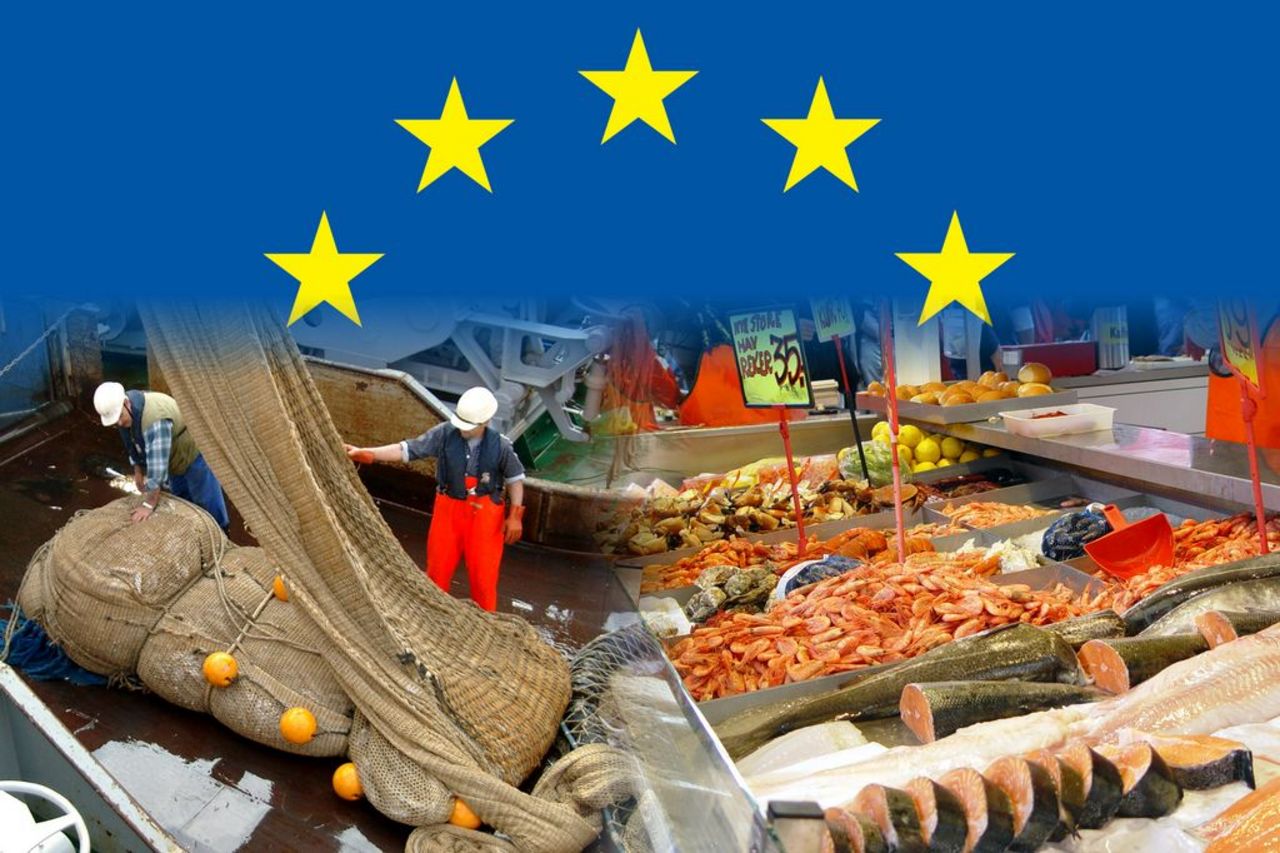Project
Socio economic effects of management measures of the future CFP (SOCIOEC)

SOCIOEC is an interdisciplinary, Europe-wide project bringing together scientists from several fisheries sciences disciplines with industry partners and other key stakeholders to work in an integrated manner on solutions for future fisheries management that can be implemented at a regional level.
Background and Objective
The central concept is to provide a mechanism for developing measures that are consistent with the overarching sustainability objectives of the EU, and that can provide consensus across all stakeholders. The first step will be to develop a coherent and consistent set of management objectives, which will address ecological; economic and social sustainability targets. The objectives should be consistent with the aims of the Common Fisheries Policy (CFP), Marine Strategy Framework Directive (MSFD) and other EU directives, but they should also be understandable by the wider stakeholder community and engage their support. This will then lead to the proposal of a number of potential management measures, based on existing or new approaches. The second step will be to analyze the incentives for compliance provided by these measures. In particular, we will examine fishermen's responses and perceptions of these measures, based on historical analysis as well as direct consultation and interviews. This project part will also examine how the governance can be changed to facilitate self- and co-management to ensure fishermen buy-in to promising management measures. In particular, the project will focus on the interpretation of overarching (i.e. EU) objectives in local and regional contexts. Finally, the project will examine the impacts of the management measures that emerge from this process, particularly in terms of their economic and social impacts. The Impact Assessment analysis will be integrated by evaluating the proposed measures against the criteria of effectiveness, efficiency and coherence. Special attention will be paid in evaluating the proposed management measures' performance in terms of their ability to achieve the general and specific ecological objectives.
Target Group
Policy makers, Associations, Scientific Community and Public.
Approach
The project is organised in seven workpackages (WP): WP 1 contains the project coordination and is led by the Thünen Institute of Sea Fishereies as project coordinator; WP 2 shall develop specific sustainability objectives especially for social and economic sustainability; WP 3 analyses incentive structures in past, current and future fisheries management measures; in WP 4, possibilities of the new fisheries policy regarding regionalisation and stakeholder envolvement will be analysed; WP 5 consists of qualitative and quantitative assessment of impacts of fisheries management measures of the new CFP; WP 6 is coordinating the case studies (Baltic Sea, North Sea, Western Waters, Mediterranen and Black Sea, pelagic fisheries in EU waters and selected non-EU fisheries); WP 7 organises stakeholder events, provides technical assistance like the website and disseminates the results.
Data and Methods
Qualitative and quantitative data is used, mostly on social and economic variables from the European Data Collection Framework (DCF) and sometimes collected specially for the project. Social data is collected by means of interviews, semi-structured interviews, focus groups, and stakeholder workshops. Modelling is performed using Fishrent, IBM and Fcube.
Our Research Questions
How can we improve the methodologies of Impact Assessments on fisheries management measures?
Results
The main results are:
- a list of overarching sustainability objectives, especially for social and economic sustainability, with a high buy-in of stakeholders
- a first comprehensive legal analysis of the possibilities for regionalisation and stakeholder involvement of the new CFP
- a first nearly complete compilation of all implemented fisheries management measures in the EU regional seas
- insights into the incentive structure of current management measures
- assessment of impacts of new instruments of the reformed CFP especially also for the landing obligation
Links and Downloads
Thünen-Contact

Involved Thünen-Partners
Involved external Thünen-Partners
-
Aalborg University – Research Centre for Innovative Fisheries Management
(Aalborg, Dänemark) - University of Copenhagen
(Kopenhagen, Helsingoer, Dänemark) - Wageningen University & Research (WUR)
(Wageningen, Niederlande) - Danish Technical University (DTU)
(Kopenhagen, Hirtshals, Charlottenlund, Dänemark) - Hellenic Centre for Marine Research (HCMR)
(Anavisso, Griechenland) - Institut français de recherche pour l'exploitation de la mer (IFREMER)
(Brest, LHoumeau, Issy-les-Moulineaux, Nantes, Frankreich) - The Institute for Economic Research in Fishery and Aquaculture (IREPA)
(Salerno, Italien) - University of Iceland
(Reykjavik, Island) -
Karadeniz Technical University
(Trabzon, Türkei) - University of Portsmouth (UoP)
(Portsmouth, Großbritannien (inkl. Nordirland)) - National University of Ireland Galway
(Galway, Irland) - Universite de Bretagne Occidentale (UBO)
(Brest, Frankreich) - Christian-Albrechts-Universität zu Kiel
(Kiel, Deutschland) - Marine Institute (MI)
(Galway, Irland) - AZTI-Tecnalia (Marine and Food Technological Centre. The Marine Research Division) / Fundación AZTI
(Bilbao, Sukarrieta, Spanien) - Joint Research Centre (JRC)
(Brüssel, Belgien) - AquaTT
(Dublin, Irland) -
Pêcheurs de Manche et Atlantique (PMA)
(Brest, Quimper, Frankreich) - Kutterfisch-Zentrale GmbH (KF)
(Cuxhaven, Deutschland) -
A/S Læsø Fiskeindustri (LF)
(Læsø, Dänemark)
Duration
3.2012 - 2.2015
More Information
Project funding number: 289192
Funding program: EU – FP7 – Thematic Priority "Food, Agriculture and Fisheries, and Biotechnology"
Project status:
finished
Publications
- 0
Malvarosa L, Murillas A, Lehuta S, Nielsen JR, Macher C, Goti L, Motova A, Döring R, Haraldson G, Accadia PR, Hamon KG, Bastardie F, Maravelias CD, Mardle S, Thogersen T (2019) Sustainability Impact Assessment (SIA) in fisheries: Implementation in EU fishing regions. Mar Policy 101:63-79, DOI:10.1016/j.marpol.2018.11.039
- 1
Goti-Aralucea L, Fitzpatrick M, Döring R, Reid D, Mumford J, Rindorf A (2018) "Overarching sustainability objectives overcome incompatible directions in the Common Fisheries Policy". Mar Policy 91:49-57, DOI:10.1016/j.marpol.2018.02.006
- 2
Marchal P, Andersen JL, Aranda M, Fitzpatrick M, Goti L, Guyader O, Haraldsson G, Hatcher A, Hegland TJ, Le Floc'h P, Macher C, Malvarosa L, Mardle S, Murillas A, Nielsen JR, Sabatella R, Smith AD, Stokes K, Thoegersen T, Ulrich C (2016) A comparative review of fisheries management experiences in the European Union and in other countries worldwide: Iceland, Australia, and New Zealand. Fish Fisheries 17(3):803-824, DOI:10.1111/faf.12147
- 3
Döring R, Goti L, Fricke L, Jantzen K (2016) Equity and ITQs: About fair distribution in quota management systems in fisheries. Environ Values 25(6):729-749, DOI:10.3197/096327116X14736981715742
- 4
Vos BI de, Döring R, Aranda M, Buisman EF, Frangoudes K, Goti L, Macher C, Maravelias CD, Murillas-Maza A, Valk O van der, Vasilakopoulos P (2016) New modes of fisheries governance: implementation of the landing obligation in four European countries. Mar Policy 64:1-8, DOI:10.1016/j.marpol.2015.11.005
- 5
Simons SL, Döring R, Temming A (2015) Combining area closures with catch regulations in fisheries with spatio-temporal variation: Bio-economic implications for the North Sea saithe fishery. Mar Policy 51(1):281-292, DOI:10.1016/j.marpol.2014.08.017
- 6
Simons SL, Döring R, Temming A (2015) Modelling fishers' response to discard prevention strategies: the case of the North Sea saithe fishery. ICES J Mar Sci 72(5):1530-1544, DOI:10.1093/icesjms/fsu229
- 7
Simons SL, Bartelings H, Hamon KG, Kempf A, Döring R, Temming A (2014) Integrating stochastic age-structured population dynamics into complex fisheries economic models for management evaluations: the North Sea saithe fishery as a case study. ICES J Mar Sci 71(7):1638-1652, doi:10.1093/icesjms/fsu049
- 8
Nielsen JR, Ulrich C, Hegland TJ, Voss Bde, Thoegersen T, Bastardie F, Goti L, Eigaard OR, Kindt-Larsen L (2013) Critical report of current fisheries management measures implemented for the North Sea mixed demersal fisheries. Charlottenlund: National Institute of Aquatic Resources, 82 p, DTU Aqua Rep 263
- 9
Kraus G, Döring R (2013) Die Gemeinsame Fischereipolitik der EU: Nutzen, Probleme und Perspektiven eines pan-europäischen Ressourcenmanagements. Z Umweltrecht(1):3-9
- 10
Döring R, Goti L (2012) SOCIOEC – Socio-economic effects of management measures of the future CFP – overview on a new European FP 7 project. In: IIFET 2012 Tanzania Proceedings. pp 1-12

![[Translate to English:] [Translate to English:]](/media/_processed_/7/1/csm_IMG_7977_large_1defaf5de1.jpg)

![[Translate to English:] Logo des Bundesministerium für Ernährung und Landwirtschaft](/media/allgemein/logos/BMEL_Logo.svg)